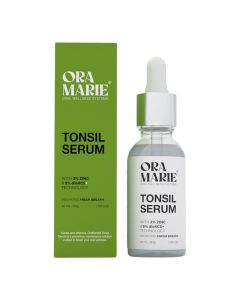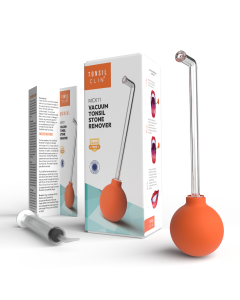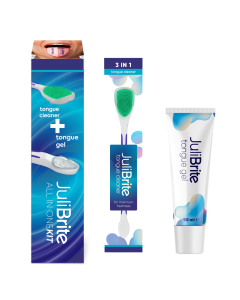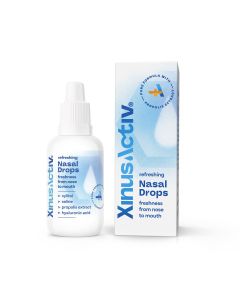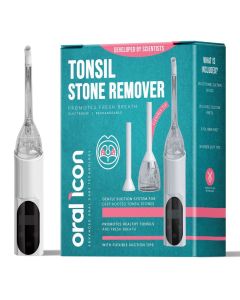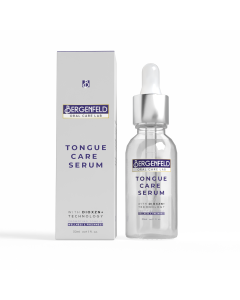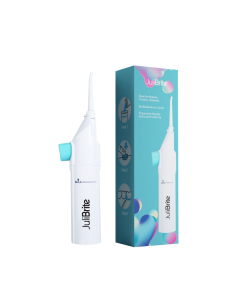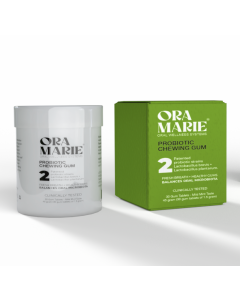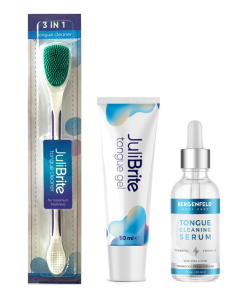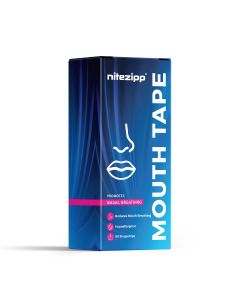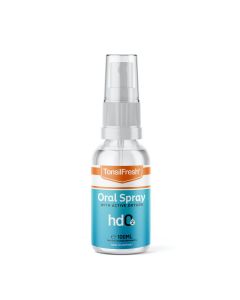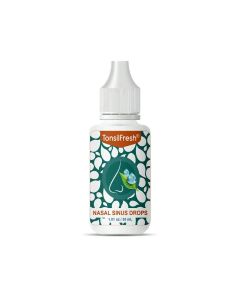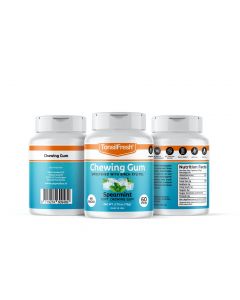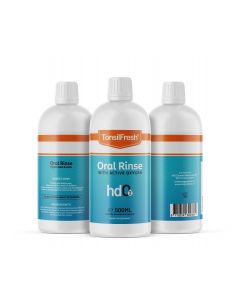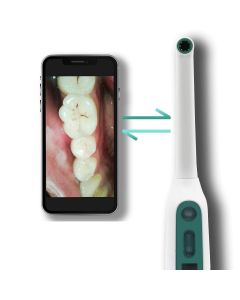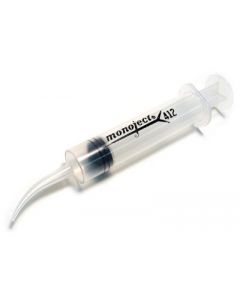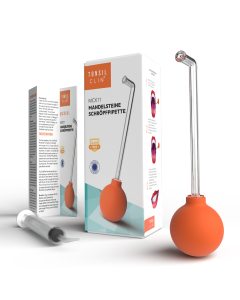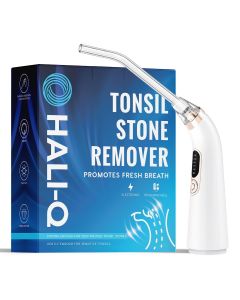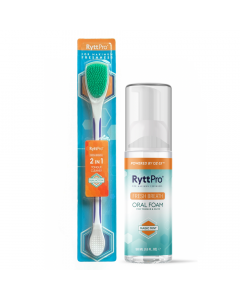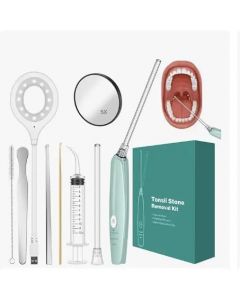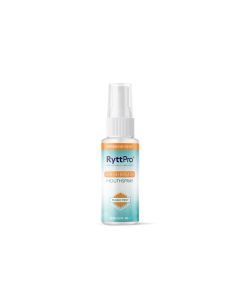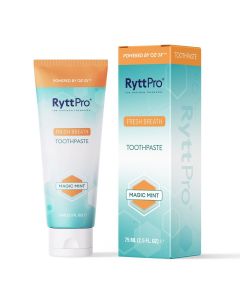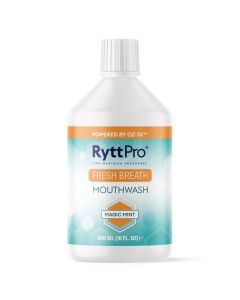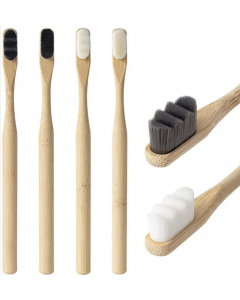Tonsil Stones
What are tonsil stones?
Tonsil stones, also known as “tonsilloliths,” are small, calcified formations that develop in the tonsillar crypts, which are the small crevices or pockets on the surface of the tonsils.
Tonsil stones look like smelly, cheese-like white or yellowish lumps, and they can range in size from tiny specks to larger chunks.
What causes tonsil stones?
Several factors contribute to the formation of tonsil stones:
-
The mouth’s structure and tissue composition:
The tonsils are made up of lymphoid tissue (intended to remove waste products such as mucus and blood cells from the body) and have numerous small crevices called crypts. These crypts are natural pits that can easily trap food particles, dead cells, mucus and bacteria. Once this trapped debris gets stuck in the tonsillar crypts, it’s difficult for it to be expelled naturally.
Furthermore, the mouth’s moist environment supports bacterial growth, which can lead to the formation of biofilms on trapped debris. Over time, this debris can calcify, forming hard stones. -
Dry mouth:
A lack of saliva disrupts the natural balance in the mouth. Therefore, a dry mouth can lead to many oral problems, such as caries (cavities), bad breath, gingivitis and tonsil stones. If you suffer from dry mouth, for whatever reason, you should pay attention to it. Use special products that hydrate your oral mucous membranes and stimulate saliva production. -
Poor oral hygiene:
Poor oral hygiene significantly contributes to the formation of tonsil stones. It leads to the build-up of food particles, dead cells and bacteria in the mouth, which can then become trapped in the tonsillar crypts and form tonsil stones. Therefore, maintaining good oral hygiene through regular brushing, flossing and mouth rinsing can help prevent this by keeping the mouth clean and reducing debris buildup.
In addition to good daily oral hygiene, it’s important to avoid harsh products that contain aggressive ingredients, such as alcohol, chlorhexidine or SLS (sodium lauryl sulphate). Such products disrupt the natural balance in the oral cavity, potentially leading to more debris and bacterial buildup. -
Foods and lifestyle:
A healthy and varied diet is essential for your oral health. Limiting sugar and dairy products can help reduce the risk of tonsil stone formation. Sugar promotes bacterial growth (and is terrible for your teeth), while dairy products can increase mucus production, contributing to debris buildup in the tonsils. Unhealthy habits such as smoking and excessive alcohol can also contribute to poor oral health, reduced immunity and a greater risk of tonsil stones.
But no matter how healthy your food and lifestyle choices are, certain metabolic conditions may make you extra sensitive to the formation of tonsil stones. For example, individuals with conditions like diabetes, which can alter metabolism, may be at a higher risk of developing tonsil stones due to changes in saliva composition or immune function.
Can everyone get tonsil stones?
Anyone who has not had their tonsils removed can develop tonsil stones. Approximately 35% of the population is estimated to occasionally or regularly suffer tonsilitis.
What are the symptoms of tonsil stones?
Tonsil stones are associated with various symptoms, including:
-
Bad breath:
One of the most common symptoms of tonsil stones is bad breath. This is because bacteria thrive in the trapped debris within the tonsil crevices. These microorganisms use the contents of tonsil stones and convert them into foul-smelling sulphur gases. If you’re worried about bad breath (whether or not that’s caused by tonsil stones), the HaliQ Bad Breath Tester is the ideal solution.
The device’s special sensors detect the number of volatile sulphur compounds (odorous gases). The stronger the smell, the higher the number. If your score is high, paying extra attention to cleaning your tongue, nose, and tonsils is advisable. -
Sore throat:
A sore throat or difficulty swallowing can be another sign that you have tonsil stones. The stones can rub against the sensitive throat tissues, leading to discomfort or a sore throat. Additionally, the accumulation of bacteria and debris in the tonsils can contribute to throat irritation and inflammation. -
Coughing up:
Tonsil stones can irritate the throat or trigger the gag reflex, leading to coughing up. Additionally, if a tonsil stone becomes dislodged or partially dislodged, it may stimulate the throat, resulting in a coughing reflex as the body tries to get rid of it. So, you may be able to cough up a tonsil stone.
Are tonsil stones dangerous?
While tonsil stones are generally not dangerous and are pretty normal to experience, they can cause discomfort and unpleasant symptoms such as those mentioned above.
However, In some cases, larger tonsil stones can lead to more severe symptoms or complications, such as persistent throat infections or abscess formation. Additionally, chronic inflammation of the tonsils due to tonsil stones may necessitate medical intervention, such as tonsillectomy (surgical removal of the tonsils), especially if symptoms are recurrent or severe.
Tonsil stones are also not contagious. As they’re developed from debris in the tonsils, you can’t pass them from person to person like an infectious illness. However, the bacteria in tonsil stones can cause bad breath, so good oral hygiene is essential.
Deep-hidden tonsil stones
Tonsil stones can vary in depth within the tonsil crypts, depending on factors like the anatomy of the tonsils and their size. Some tonsil stones may be superficial and easily visible, while others may be hidden deeper within the tonsil crypts, making them more challenging to see or remove.
If you have tonsil stones so deep in the back of your throat, you’ll need to remove them with special tools or techniques. We’ll show you some of our favourites in this article.
Do tonsil stones disappear on their own?
Tonsil stones can sometimes disappear on their own, especially if they’re small. Small tonsil stones may dislodge or dissolve over time, particularly with good oral hygiene. However, more significant or persistent tonsil stones may not go away on their own and may require intervention to remove them.
Treatment for tonsil stones
If you want to get rid of tonsil stones, you’ll first have to pay extra attention to your daily oral hygiene. However, this doesn’t mean tonsil stones only occur in people who don’t take good care of their teeth and mouths. As mentioned above, several factors are involved.
In most cases, you can get rid of tonsil stones safely at home by yourself. However, if you’re suffering from chronically inflamed tonsils, you should consult your doctor, who may recommend removing your tonsils via a tonsillectomy.
Intensive cleaning of the tonsils
Dental professionals recommend the OraMarie® Tonsil Clean Serum, which is by far the most effective and safest method on the market for getting rid of tonsil stones without irritating the tonsils.
Enriched with the revolutionary DioXCS+™ technology, this ground-breaking formula fights harmful anaerobic bacteria, leaving the oral flora intact. It thoroughly cleans deep into the oral cavity to break down tonsil stones while eliminating unpleasant odours from your throat for instant fresh breath.
OraMarie® is free from harsh substances such as SLS, alcohol, peroxide, parabens, chlorhexidine, and colouring agents, making it safe and suitable for daily use. Plus, as it’s an easy-to-use serum, there’s no need to worry about that awful gag reflex.
How to remove tonsil stones yourself
Most people who suffer from tonsil stones can remove them using a moist cotton swab. While this works to dislodge superficial tonsil stones, you’ll need the right tools for the more deeply clogged ones - the ones that are so deep in the back of your throat that you can’t reach them.
A simple yet effective tool for fast and safe at-home tonsil stone removal (even those deep-seated ones) is the TonsilClin® MCX11 Vacuum Tonsil Stone Remover. It consists of a glass-free, rounded pipette with a rubber suction ball. As you squeeze the ball, it acts as a miniature vacuum cleaner for your tonsils, sucking out tonsil stones and any other debris from your oral cavity.
Another excellent product for tonsil stone removal at home is the HaliQ Electric Tonsil Stone Remover. This device is trusted by dental professionals and features a safe, high-quality polymer suction tip and arched pipette, so you can quickly and easily remove even the most stubborn tonsil stones.
There are three levels of suction power to choose from, and you also get a professional dental mouth lamp and mirror, so you can see and eliminate tonsil stones without any unnecessary prodding and poking.
What mouthwashes help get rid of tonsil stones?
Using mouthwash can help counteract the formation of tonsil stones. Mouthwash can reduce bacteria in the mouth, which may contribute to the formation of tonsil stones. Additionally, gargling with mouthwash can help dislodge and remove debris from the tonsils, potentially preventing the formation of new stones.
Choose a mouthwash based on an active oxygen formula. This will target the bacteria in the mouth and throat, neutralising the foul-smelling gasses they produce.
Some of our favourites are:
- RyttPro Mouthwash Magic Mint
- Julibrite Mouthwash (coming soon)
- TonsilFresh Mouthwash
How to prevent tonsil stones
-
Good oral hygiene:
Good oral hygiene, including regular brushing and flossing and using an effective mouthwash that supports the mouth’s natural balance, can help prevent tonsil stones by reducing the buildup of bacteria and debris in the mouth and tonsils. Additionally, visiting the dentist for regular check-ups and cleanings can catch potential issues early. -
Tongue cleaning:
Cleaning the tongue helps remove bacteria, food particles and dead cells that can contribute to bad breath and the build-up of oral bacteria. Tongue cleaning can help create a healthier oral environment by minimising oral bacteria and debris, thereby reducing the likelihood of tonsil stone development. Some of our favourite tongue-cleaning products are: JuliBrite Tongue Cleaning Kit, RyttPro Tongue Cleaner & Tongue Foam and Bergenfeld Tongue Cleaning Serum -
Preventing post-nasal drip:
You may be more susceptible to tonsil stones when you have a cold, flu or allergy. This is because of a natural reaction called post-nasal drip, where excess nasal mucus (or snot) that contains bacteria drains into your pharynx. This post-nasal drip can then end up near your tonsils and contribute to the formation of tonsil stones. If you’re suffering from post-nasal drip, Tonsilfresh Nasal Sinus Drops can help eliminate the mucus and prevent the progression and formation of tonsil stones. -
Avoiding certain foods and alcohol:
Avoiding certain foods and alcohol can help prevent tonsil stones by reducing the buildup of debris and bacteria in the tonsillar crypts. Certain foods, such as dairy products and those high in sugar, can increase mucus production and contribute to the formation of tonsil stones. Alcohol can also contribute to dry mouth, which may exacerbate bacterial growth and debris accumulation in the throat.
By incorporating these practices into your routine, you can reduce the risk of developing tonsil stones. However, if you need some extra help to prevent tonsil stones, we recommend the following products:
Tonsils and health
Tonsils play a crucial role in the body's immune system. They help trap and filter out bacteria, viruses and other pathogens that enter the body through the mouth and nose, thereby helping to prevent infections in the respiratory and gastrointestinal tracts.
Additionally, the tonsils contain lymphocytes - white blood cells that play a vital role in the immune response by producing antibodies to fight infections.


